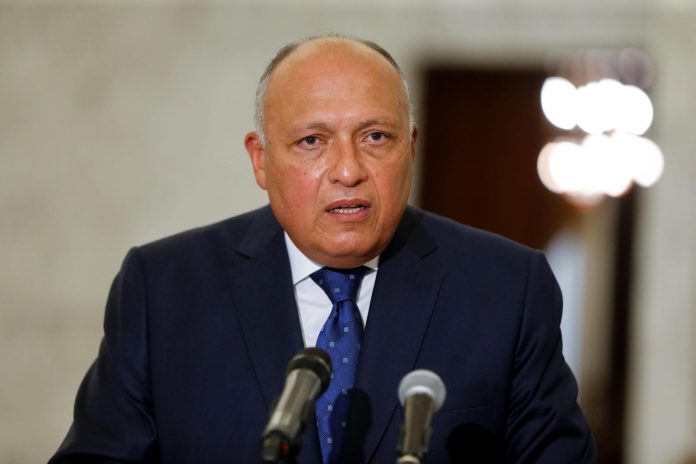Civil society organisations and governments may have to cancel events at the UN climate summit in November as the Egyptian hosts have tightened security for the opening days.
COP27 will open on Sunday 6 November in Sharm el-Sheikh, and on the Monday and Tuesday world leaders are due to descend on the conference centre for talks to direct their negotiating teams.
Many countries and civil society groups have set up pavilions inside the UN-secured “blue zone”, where governments will meet for the leaders’ summit. The pavilions typically host events with scientists, politicians, business leaders, celebrities and campaigners to exchange ideas on key climate issues.
But they have been told that events planned for the opening Monday will have to be cancelled unless they involve visiting heads of state. In an email seen by the Guardian, the UN wrote that “the government of Egypt has decided there will be no pavilion events on 07 November 2022”.
NGOs have raised concerns because they have carefully targeted their rosters of events to raise key issues they say must be addressed at the two-week-long conference. They fear the cancellations could restrict debate and undermine the role of non-state actors in the event. Media access to pavilions and other areas within the blue zone is also likely to be heavily restricted.
James Lloyd, an organiser behind the Nature Positive Pavilion, said: “International UN climate meetings are not just about heads of state and ministers. They are also a space for representatives from the wider climate community to drive progress. The first few days of the climate conference allow for representatives from local governments, corporates and frontline communities to come together in partnership and share ambitious pledges and update action plans.”
He continued: “We’re concerned that the shutdown of pavilions during the first day of the summit takes away the critical spaces for this dialogue, stopping events and important discussions that are critical in moving the net zero and nature positive agenda forward.”
At COP26 in Glasgow, presidents and prime ministers, Indigenous leaders, activists including Greta Thunberg, and bosses of large companies attended pavilion events.
The Egyptian government said they decided to restrict events on the first day of the world leaders summit due to high number of heads of state and government expected to be present in the pavilion area. There will not be any restrictions the following day on 08 November.
Countries and groups that have paid for their pavilions at Cop27 may be able to seek redress under their contracts, or to invite heads of state to their events to circumvent the rules.
UN climate conferences consist of a blue zone, where negotiations take place and NGOs, observers and media can mingle with delegations, and a green zone, where businesses congregate to display their green innovations, and which members of the public can attend.
Although sections of the blue zone are always closed off for the leaders’ summit segment of Cops, cancelling events that had been planned is a highly unusual action by the host nation.
NGOs are concerned that Egypt may intend to clamp down on their activities throughout the Cop. However, after the leaders’ summit, the right of NGOs to protest will be safeguarded under the UN’s rules.
Egypt’s record on human rights is under the spotlight at COP27. Civil society organisations have also raised concerns that Egyptians will be unable to march in the streets, an important part of previous Cops intended to put pressure on governments to act on the climate crisis.
Cop27 is likely to be a difficult summit, given geopolitical tensions over the Ukraine war, the soaring price of fossil fuels and food, and developing countries’ concerns that rich countries are failing to act urgently.
Kate Cooke, an organiser and co-host behind the Food Systems Pavilion, said: “Tackling the climate crisis is a global problem that we all share. In order to bring about meaningful change, we must work together to accelerate ambitious action. This means civil society, businesses and NGOs joining the conversation.
“Shutting the pavilions out of this critical dialogue at the start of the conference restricts the impact we could all have. As the Food Systems Pavilion, we are a coalition of organisations who have come together to bring the solutions and opportunities that food systems provide to have a positive impact on our climate at Cop, but we can’t do that if we aren’t in the room.”.
SOURCE: THE GUARDIAN/PACNEWS













